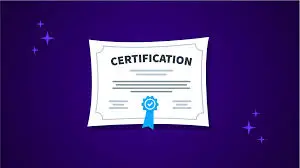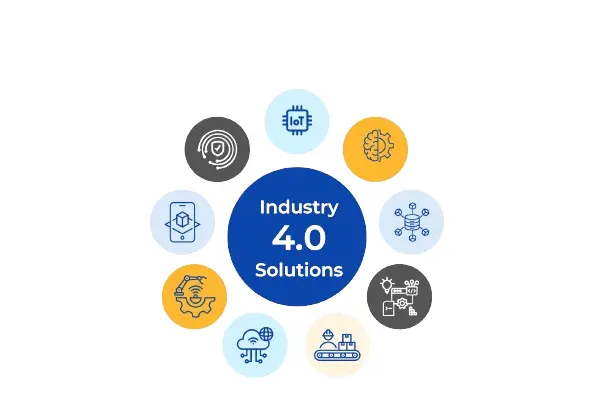Course Overview:
This 10-day training course provides an in-depth exploration of Lean Manufacturing principles using LeanKit software. Participants will learn how to implement Lean methodologies to streamline operations, reduce waste, and improve efficiency in manufacturing processes. The course combines theoretical knowledge with practical applications, including hands-on exercises and real-world case studies, to ensure participants can effectively apply Lean principles in their own organizations.
Course Duration:
10 Days
Target Audience:
- Manufacturing Managers
- Operations Managers
- Process Improvement Specialists
- Lean Practitioners
- Quality Assurance Professionals
- Supply Chain Analysts
Organizational Impact:
- Improved operational efficiency and productivity through the application of Lean principles.
- Reduction in waste and operational costs, leading to enhanced profitability.
- Streamlined processes and better alignment with organizational goals and objectives.
- Increased employee engagement and morale through a culture of continuous improvement.
Personal Impact:
- Enhanced understanding of Lean Manufacturing principles and their application.
- Proficiency in using LeanKit software for Lean process management.
- Ability to lead and implement Lean initiatives within an organization.
- Improved problem-solving skills and a data-driven approach to process improvement.
Course Level:
Course Objectives:
- To understand the core principles and practices of Lean Manufacturing.
- To learn how to utilize LeanKit software for managing and optimizing Lean processes.
- To apply Lean tools and techniques to identify and eliminate waste in manufacturing operations.
- To develop skills in implementing and sustaining Lean Manufacturing initiatives.
- To drive continuous improvement and operational excellence within the organization.
Course Outline:
Module 1: Introduction to Lean Manufacturing
- Overview of Lean Manufacturing principles and history
- Key concepts and terminology (e.g., value stream, waste reduction, Kaizen)
- Introduction to LeanKit software and its role in Lean processes
- Hands-on Exercise: Identifying Lean principles in a case study
- Case Study: Analysis of a successful Lean implementation in a manufacturing setting
Module 2: Value Stream Mapping
- Techniques for mapping value streams and identifying value-added activities
- Using LeanKit to create and analyze value stream maps
- Identifying and eliminating non-value-added activities
- Hands-on Exercise: Creating a value stream map for a sample process
- Real-Life Project: Developing a value stream map for a current manufacturing process
Module 3: Waste Reduction Techniques
- Understanding the 7 types of waste (TIMWOOD: Transport, Inventory, Motion, Waiting, Overproduction, Overprocessing, Defects)
- Tools and techniques for waste reduction (e.g., 5S, Kanban)
- Applying LeanKit to track and manage waste reduction efforts
- Hands-on Exercise: Identifying waste in a simulated environment
- Case Study: Implementing waste reduction techniques in a real-world scenario
Module 4: 5S Methodology
- Principles and steps of the 5S methodology (Sort, Set in Order, Shine, Standardize, Sustain)
- Implementing 5S in the workplace using LeanKit
- Measuring and sustaining 5S improvements
- Hands-on Exercise: Conducting a 5S audit in a sample area
- Real-Life Project: Applying 5S methodology to an actual work area
Module 5: Kanban Systems and Just-In-Time (JIT)
- Overview of Kanban systems and JIT principles
- Setting up and managing Kanban boards using LeanKit
- Benefits and challenges of JIT in manufacturing
- Hands-on Exercise: Designing a Kanban system for a production line
- Case Study: Analyzing JIT implementation in a leading manufacturing company
Module 6: Standard Work and Process Improvement
- Developing and documenting standard work procedures
- Continuous process improvement techniques (e.g., PDCA cycle)
- Using LeanKit to monitor and improve standard work practices
- Hands-on Exercise: Creating standard work procedures for a sample process
- Real-Life Project: Documenting and improving standard work in a manufacturing process
Module 7: Root Cause Analysis and Problem Solving
- Techniques for root cause analysis (e.g., Fishbone Diagram, 5 Whys)
- Applying LeanKit to support problem-solving and corrective actions
- Developing solutions and implementing improvements
- Hands-on Exercise: Conducting a root cause analysis for a quality issue
- Case Study: Solving a complex problem using Lean principles
Module 8: Lean Metrics and Performance Measurement
- Identifying key Lean metrics and performance indicators
- Using LeanKit to track and analyze Lean performance data
- Techniques for setting targets and measuring success
- Hands-on Exercise: Developing a Lean performance dashboard
- Real-Life Project: Measuring and reporting Lean improvements in a live environment
Module 9: Change Management and Lean Culture
- Strategies for managing change and fostering a Lean culture
- Engaging employees and leadership in Lean initiatives
- Using LeanKit to communicate and track change efforts
- Hands-on Exercise: Creating a change management plan for Lean implementation
- Case Study: Building a Lean culture in a global manufacturing organization
Module 10: Capstone Project and Course Review
- Integration of course concepts into a comprehensive project
- Participants present their Lean implementation plans and receive feedback
- Review of key learnings and best practices in Lean Manufacturing
- Final Project Presentation: Showcase of a Lean project demonstrating implementation and results
Related Courses
Course Administration Details:
METHODOLOGY
The instructor-led trainings are delivered using a blended learning approach and comprise presentations, guided sessions of practical exercise, web-based tutorials, and group work. Our facilitators are seasoned industry experts with years of experience, working as professionals and trainers in these fields. All facilitation and course materials will be offered in English. The participants should be reasonably proficient in English.
ACCREDITATION
Upon successful completion of this training, participants will be issued an Indepth Research Institute (IRES) certificate certified by the National Industrial Training Authority (NITA).
TRAINING VENUE
The training will be held at IRES Training Centre. The course fee covers the course tuition, training materials, two break refreshments, and lunch. All participants will additionally cater to their travel expenses, visa application, insurance, and other personal expenses.
ACCOMMODATION AND AIRPORT PICKUP
Accommodation and airport pickup are arranged upon request. For reservations contact the Training Officer.
- Email: [email protected]
- Phone: +254715 077 817
TAILOR-MADE
This training can also be customized to suit the needs of your institution upon request. You can have it delivered in our IRES Training Centre or at a convenient location. For further inquiries, please contact us on:
- Email: [email protected]
- Phone: +254715 077 817
PAYMENT
Payment should be transferred to the IRES account through a bank on or before the start of the course. Send proof of payment to [email protected]
Click here to register for this course.
Register NowCustomized Schedule is available for all courses irrespective of dates on the Calendar. Please get in touch with us for details.
Do you need more information on our courses? Talk to us.










